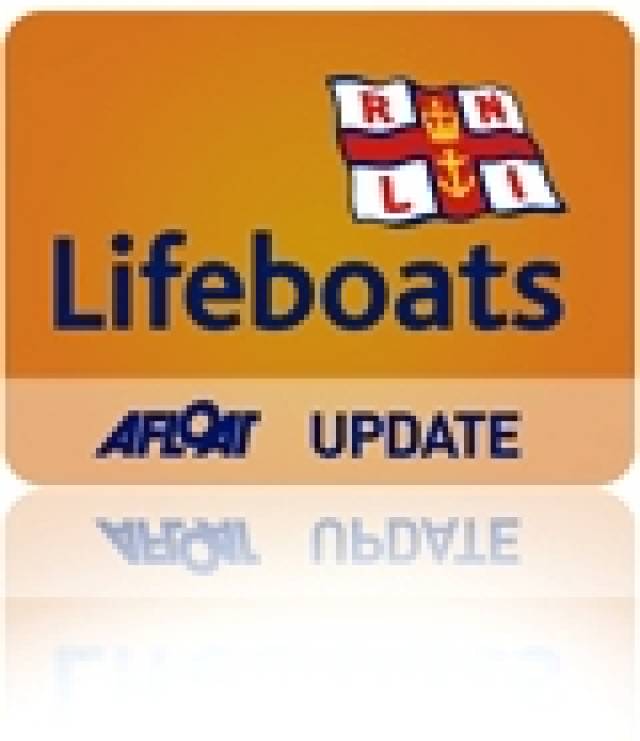Bundoran RNLI fundraiser and volunteer tractor driver Cormac McGurren got a surprise on his wedding day last Friday (19th July) when, during the best man speech, he was presented with the RNLI Bronze Badge by Bundoran RNLI Lifeboat Operations Manager Tony McGowan.
Cormac had been due to collect his award at a special ceremony in early June held at Trinity College but due to other commitments was unable to make it to pick up the badge which was awarded to him to recognise his role in raising funds and awareness for the life-saving charity and for supporting the volunteer lifeboat crews in their work.
Cormac who has been a volunteer with the charity for almost twenty years organises the annual dinner dance every January which this year attracted a crowd of around 1200. He also is one of the organising committee for the newly established soapbox race which happens on the June bank holiday weekend in Bundoran. He married Joanne in her home town of Castlerea, County Roscommon on Friday.
As he didn't make it to Dublin, Cormac's best man and fellow Bundoran RNLI volunteer Brian Gillespie arranged that he get it so it could be presented to him on his wedding day as part of his best man duties.
Paying tribute to Cormac as he presented him with his award, Lifeboat Operations Manager for Bundoran RNLI Tony McGowan said 'Cormac is not only a volunteer for the RNLI, he's a volunteer for the community of Bundoran – you know if you need any kind of work done you just call Cormac and it's done. I want to congratulate him on his recognition from the RNLI and wish him many more years success with the organisation and of course many years of happiness with his new bride Joanne'.































































